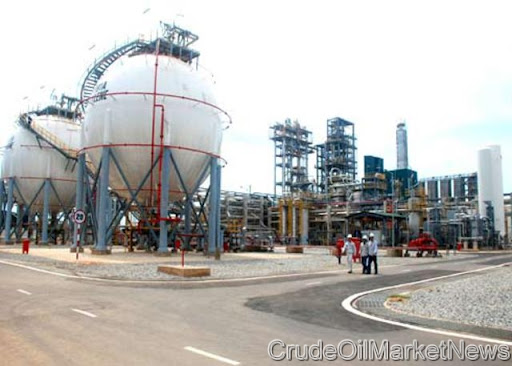 SINGAPORE (Dow Jones) - The crude oil futures were slightly lower in Asia Tuesday after the Japanese government approved the release of oil reserves to help areas affected by earthquake and tsunami, but the prices were likely to remain supported by air strikes led by the United States in Libya, which can lead to a prolonged military campaign and the disruption of oil supplies more.
SINGAPORE (Dow Jones) - The crude oil futures were slightly lower in Asia Tuesday after the Japanese government approved the release of oil reserves to help areas affected by earthquake and tsunami, but the prices were likely to remain supported by air strikes led by the United States in Libya, which can lead to a prolonged military campaign and the disruption of oil supplies more.
Brent crude oil prices could reach $ 150 a barrel if supplies of other medium-sized exporter were interrupted in the top of the power loss of Libya for more than 1 million barrels a day, analysts at Societe Generale said in a note to investors.
"If large-scale riots spread to threaten Saudi Arabia and Saudi oil exports, we see trade Brent at $ 150 - $ 200 a barrel range," they said.
In the New York Mercantile Exchange, the future of light, sweet crude for April delivery traded at $ 101.98 a barrel by 0708 GMT, down $ 0.35 in the Globex electronic session. May Brent crude on London's ICE Futures exchange fell $ 0.35 to $ 114.61 a barrel.
"The oil market needs a clear mark of the (Organization of Petroleum Exporting Countries) that the loss of production in Libya will be replaced - and soon," said the Center for Global Energy Studies in its monthly report. "Failure to act in a transparent and decisive risk a repeat of the price rise of 2008 and the subsequent collapse in oil demand and OPEC revenues."
While the destruction of demand in Japan is weighing on prices, the country's demand for oil imports will increase over time due to the loss of nuclear generation capacity, which will be greater than the demand lost by less activity economic, Goldman Sachs analysts said in a note.
"We estimate that 230 thousand barrels of oil combined residual fuel oil and direct crude burning will be necessary to compensate for the loss of nuclear generation capacity in Japan," he said. "To lose a comparable amount of oil demand in Japan requires a 8.0% decline in economic activity in Japan by the earthquake and its consequences."
Meanwhile, escalating tensions in Bahrain and Yemen appear to have no solution in sight, Jim Ritterbusch, president of Ritterbusch & Associates, said in a note.
"While no country produces a significant amount of oil, its proximity to shipping lanes and the eastern Saudi oil fields will continue these factors worthy of a lot of the risk premium for the coming weeks," he said.
Nymex April reformulated gasoline blendstock - the contract reference gasoline - fell 124 points to $ 2.9850 a gallon, while April heating oil traded at $ 3.0429, 96 points behind.
April ICE gasoil changed hands at $ 974.25 a tonne, down $ 4.00 from Monday's settlement.
(Source: http://online.wsj.com/article/BT-CO-20110322-701921.html)


























0 comments